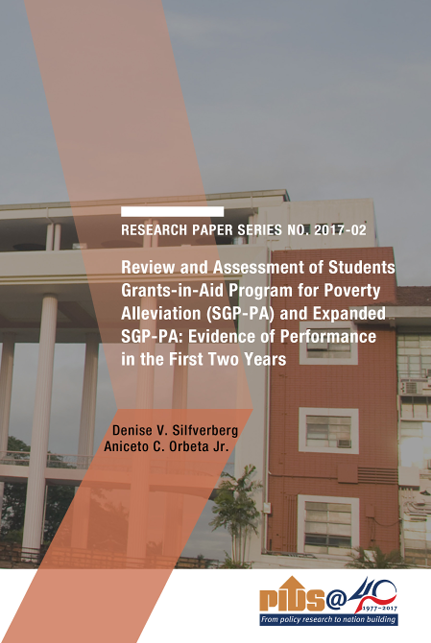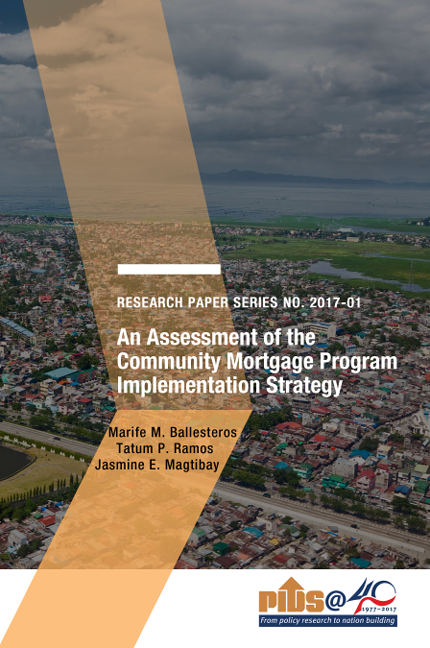PIDS 2017
The Research Paper Series are the final outputs of the research staff. The Series is a formal publication meant to promote research, stimulate discussion and encourage the use of study results. Studies published under this Series have been reviewed by an internal publications review committee and by external referees. Studies are original and have not been published in any form and contain the rationale, framework, methodology, conclusions or recommendations and other relevant information.
-Republic of the Philippines, PIDS
Abstract
Making higher education more accessible for the poor serves the equity objective. Until today, the main policy tool to achieve this objective is funding public higher education institutions. This paper assesses a new initiative of the Philippine government called the Students Grants-inAid Program for Poverty Alleviation (SGP-PA) implemented starting 2012. SGP-PA has two important unique features: (1) it is well targeted to identified Pantawid Pamilya households and (2) it provides a grant amount that is sufficient to cover all regular education expenses including living allowance. Comparing the academic performance of grantees to that of their peers, the results show that grantees from poorer socioeconomic background had only poorer grades during the first year. They were already performing at par in Math and even better in Science and English, compared to nongrantees, starting their second year. The study also highlights the importance of entrance exam scores in the academic performance of both grantees and nongrantees. Finally, the study documents the challenges faced by the program and provides recommendations on how to address these challenges.
Abstract
The Community Mortgage Program (CMP) is a financing scheme that enables organized residents of slums to borrow funds for land purchase and housing development. It is already considered to be the most innovative and responsive government housing program in the Philippines. Nevertheless, the CMP still has weaknesses that have not been given much attention during the years of its implementation. These issues pertain to program targeting, service delivery, and organization. This study aims to review the current processes and overall performance of the CMP, including its variants—the localized CMP and the HighDensity Housing Program. The study also provides recommendations on how the identified issues can be addressed.

